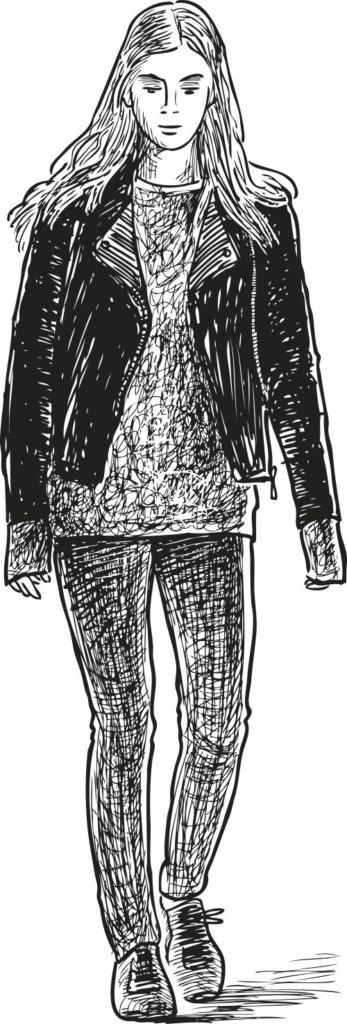“Everything’s kind of moving so fast and I’m just not moving at the pace everyone is moving”
“I’m not even an individual, I’m just a teen who’s at school”
“Even after a day of revision, a day of school, a day of revision after school, I still feel like I’ve done nothing”
“I take like an hour to get ready, but it just sort of helps me get ready for the day”
“I feel like it’s a secret weapon or something. Someone could make me feel in a bad mood and I’ll just go to the gym. I’ll be fine afterwards”
“When I need to talk, they’re always there. When I’m not having a good day, they understand it”

Project overview
Using video diaries, Interpretative Phenomenological Analysis (IPA) and film, the project adopted an interdisciplinary approach to explore the everyday lives of adolescent girls. It piloted an innovative method for capturing and communicating what matters most to adolescents from their own perspective, and sharing these insights with broader audiences – including young people.
Aims
The project aimed to capture the everyday lives of adolescent girls, with a particular focus on the difficulties they face and what they find helpful. A key objective was to empower young people to shape the research focus by identifying what matters most to them. In addition, the project sought to provide young people with the opportunity to create films that offer insight into their everyday experiences from their own perspective. goes here
Why is this important
Evidence indicates that adolescent girls are facing increasing challenges in their everyday lives. Research shows that girls report lower levels of positive mental health and wellbeing compared to boys, and these levels appear to be in decline. Similarly, mental health difficulties appear to be increasing in young people, with girls more likely to experience an emotional disorder or episode of depression than boys. In support of prevention efforts and to promote healthy functioning, it is essential to deepen our understanding of adolescent girls’ everyday experiences, particularly through approaches that access young people’s own perspectives on what matters most to them.
Methodological approach
The project combined video diary and Interpretative Phenomenological Analysis (IPA) methods to capture everyday routine experiences—those that may be overlooked, taken for granted, or difficult to articulate in interviews alone, yet are central to participants’ lived worlds. This methodological approach enhanced the participatory nature of the research by allowing adolescent girls to shape the focus of the inquiry, thereby helping to address traditional power imbalances between adult researchers and youth participants. In addition, these methods were integrated with film techniques from the creative arts, expanding the expressive possibilities for participants and enabling a richer and more accessible form of dissemination.
The research team
Principal Investigator: Dr Joanna Farr – Lecturer of Psychology, Birkbeck University
Filmmaker: Dr Bartek Dziadosz – Director of Derek Jarman Lab, Birkbeck University
Researcher: Dr Rachel Staff – Doctoral researcher, Birkbeck University
Lived experience advisor: Minnie Offord-Aresti
Publications and Events
The Film – Dear Video Diary
All participants were invited to create an individual film from their video diaries and to contribute their work to a compilation film that brings together their shared experiences
